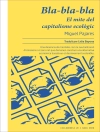The devastating effects of climate change are undeniable. Fires rage and waters rise in every corner of the globe. In light of these changes to our planet, the issue of social and environmental wellbeing has gained prominent attention from both academia and policy makers. Scholarly research on the interaction between social and employment policy domains has flourished. Academics now reflect on the different aspects of environmental and social protection, ecological and social risks, and the costs of climate change, sustainable welfare and new social movements prompted by green transitions.
This book provides a vital contribution to the emerging research agenda. It brings together scholars from interconnected disciplines to discuss the eco-social debate, providing a critical overview on extant scholarship and reflecting on future research pathways on the eco-social nexus from a variety of analytical perspectives.
สารบัญ
Introduction – Ekaterina Domorenok, Paolo Graziano and Katharina Zimmermann
Part 1: Normative and Theoretical Perspectives
1. Eco-Social Policies for Planetary Wellbeing – Tuuli Hirvilammi and Teea Kortetmäki
2. Wealth and Income Maxima for Sustainable Welfare? Ecological Reasons for Economic Limitarianism – Katharina Bohnenberger
3. Sustainable Welfare as a New Paradigm in Social Policy – Martin Fritz, Kajsa Emilsson and Jayeon Lee
4. The growth-independent welfare state – Laua Wiman, Raphael Kaufmann, Katharina Bohenberger and Steffen Lange
5. When the Lifeworld Colonizes the System: The Uncertain Political Prospects of Eco-Social Transitions – Daniel Hausknost
6. Conceptualizing Consensus? Constitutive Elements of a Political Sociology of Eco-Social Contestation and Conflict – Vincent Gengnagel
Part 2: Eco-Social Politics
7. European Trade Unions and the Eco-Social Nexus – Philippe Pochet and Bianca Luna Fabris
8. Politics, Environment and Justice in the European Union – Jan Pollex
9. Public Support for Eco-Social Policies: Insights from Focus Group Studies in Italy and Germany – Adeline Otto, Dimitri Gugushvili, Katharina Zimmermann, Vincent Gengnagel and Benedetta Cotta
10. Public Participation in Eco-Social Policies: Exploring Mechanisms for Bridging the Gap – Nicolas W. Jager and Benedetta Cotta
11. Social Movements and Eco-Social Transition – Katrin Uba
Part 3: Eco-Social Policies
12. Proposals for Sustainable Welfare Policies – Milena Büchs
13. Eco-Social Food Policy Design: Getting Food Systems inside the Doughnut – Jeroen Candel
14. Combating Residential Energy Poverty in Existing Dwellings: Eco-Social Policies and Sustainable Welfare in Denmark and Ireland – Nessa Winston, Jesper Ole Jensen and Orla Dingley
15. Synergies and Trade-offs Between Social and Green Public Procurement – Miriam Hartlapp
16. The European Green Deal and the Gradual Emergence of an EU Framework for a Just Transition – Sebastiano Sabato
17. Implementing Just Transition Efforts across the European Union: From Decarbonization to Eco-Social Policies – Matteo Mandelli
Part 4: The Eco-Social Nexus from a Global Perspective
18. The Eco-Social Nexus in Urban Climate Transitions – Jeroen Van Der Heijden
19. Just Transitions in Climate and Sustainable Governance: A Perspective from the South – Xira Ruiz- Campillo
20. Eco-Social Policy in the Liberal World of Welfare: The Institutional Opportunities for Socio-Ecological Transitions in Anglo-Saxon Regimes – Paul Bridgen
21. International Organisations in the Eco-Social Transformation: Strategies, Policies and Programmes – Luca Cigna, Torben Fischer, Emina Hasanagic Abuannab, Elke Heins and Philip Rathgeb
22. Conclusions – Ekaterina Domorenok, Paolo Graziano and Katharina Zimmermann
เกี่ยวกับผู้แต่ง
Katharina Zimmermann is Assistant Professor for Economic Sociology at the University of Hamburg. Her work focuses on labour market policies and comparative welfare state research from a multilevel perspective.












